| | |
Session 08:
FUTURE EUROPE
Energy has been at the heart of the European Union (EU) since its inception (European Coal and Steel Community 1951, European Atomic Energy Community, 1957). Over the past few years, Europe's energy system has become incrementally more low-carbon, competitive and secure. In particular, the EU energy policy has developed around the three complementary pillars of security of supply, sustainability and competitiveness (COM(2006) 105 final). These components have also been re-confirmed in the EU's 2020 to 2030 transition framework for climate and energy policies (COM(2014) 15 final). However, while the EU has been successful in institutionalising a climate policy, it has not yet been able to formulate a successful energy security policy. The risk is that if not properly designed, policies aimed at the reduction of greenhouse gas (GHG) emissions may affect the resilience of energy systems and their capacity to tolerate disturbance and to deliver stable and affordable energy services to consumers. At present, only a few scenarios among those produced by key modelling exercises address the potential synergies between climate change and energy security. The gloomy understanding that still characterises the intersections of energy security and low carbon society requires further exploration.
To better understand the current situation, the FUTURE EUROPE session aims at:
- Exploring low carbon transition theories and strategies in connection with energy security concept, considering environmental objectives alongside geopolitical and economic interests.
- Reviewing and expanding current approaches used to understand and explain possible modes for societal energy transition, taking multiple interrelated and co-evolving perspectives (environmental, geopolitical, lifestyle and cultural, political, technological, economic and combined).
- Discussing problems concerning energy in a global scenario, proposing quantitative assessments of energy security scenarios for Europe and evaluations of geopolitical tensions between different areas in the world.
- Presenting case studies on energy transition, future scenarios and potential regional and macro-regional conflicts.
Session 08A, 15th August 2016, 10:25-12:20
Moderator: |
|
New Challenges for Europe in Space
(20 minutes) Abstract
Bertrand de Montluc
Associate Professor
Sciences-Po University of Paris and AAAF(3AF)
Paris, France
Bio-sketch |
|
Mandatory versus voluntary payment for green electricity
(20 minutes) Abstract
Dr. Elcin Akcura
Principal Energy Economist
European Bank for Reconstruction and Development, London
United Kingdom
Bio-sketch |
|
Future indoor environments in Europe: An energy, IAQ, comfort and health coordinated approach
(20 minutes) Abstract
Eduardo de Oliveira Fernandes
Emeritus Professor
University of Porto
Portugal
Bio-sketch - |
|
Multi-rotor Technology as a Solution to Economic Offshore Wind Power
(20 minutes) Abstract
Peter Jamieson
Senior Technology Advisor
Wind Energy CDT
University of Strathclyde
United Kingdom
Bio-sketch |
|
Valuation of transmission network expansion: A market-based approach
(20 minutes) Abstract
Prof. José Manuel Chamorro
Department of Financial Economics II
University of the Basque Country
Spain
Bio-sketch |
Previous speakers at this session
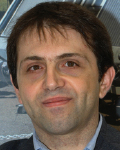
|
Assessing the role of societal factors for a low-carbon energy transition: reconciling the local with the national level - a case study for Italy (20 minutes) Abstract
Dr. Oscar Amerighi
Research and Strategy Central Unit
Energy and Sustainable Economic Development
ENEA, Italian National Agency for New Technologies, Rome
Italy
Bio-sketch |

|
Energy Security Scenarios of Future Europe (20 minutes) Abstract
Christophe Cassen
SMASH (Société de Mathématiques Appliquées et Sciences Humaines) and
CNRS (Centre National de Recherche Scientifique, Paris
France
Bio-sketch |

|
Societal drivers and barriers of energy transition (20 minutes) Abstract
Katherine Weingartner
Transatlantic Fellow
Ecologic Institute, Berlin
Germany
Bio-sketch |
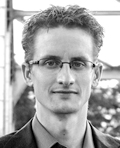
|
Approaching a secure and low-carbon energy system as an unstructured problem (20 minutes) Abstract
Dr. Govert Valkenburg
Faculty of Arts and Social Sciences
Maastricht University
Netherlands
Bio-sketch |

|
An analysis and evaluation of the EU states development coherence – some social and economic aspects (20 minutes) Abstract
Katarzyna Łabinowicz M.Sc.
Energy Research Integration Centre
Institute of Power Engineering, Warsaw
Poland
Bio-sketch |

|
Future European Personal Air Transportation System (30 minutes) Abstract
Dr. Moshe Harel
Intergam Communications, Herzliya
Israel
Bio-sketch- |

|
The efficient use of subcritical CO2 refrigerating systems for cooling with on demand heating in transcritical mode (30 minutes) Abstract
Klaas Visser
Principal, KAV Consulting Pty Ltd
Australia
Bio-sketch |

|
Exclusively Green Energy Communities (20 minutes) Abstract
Christoph Pieper
Research Assistant, Chair for Combustion, Heat and Mass Transfer
Institute of Power Engineering
Dresden University of Technology
Germany
Bio-sketch |
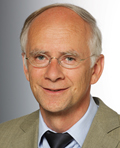
|
The future role of CCS as part of a German mitigation strategy (30 minutes) Abstract
Dr. Peter Markewitz
Senior Scientist, Analysis and Technology Evaluation (IEK-STE)
Institute of Energy and Climate Research
Germany
Bio-sketch |
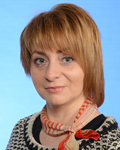
|
Regional energy strategy for a selected region in Poland as an effect of foresight project (30 minutes) Abstract
Dr. Edyta Ropuszyńska-Surma
Assistant Professor
Wroclaw University of Technology
Poland
Bio-sketch |
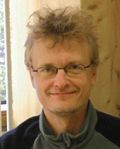
|
Influence of tree size and amount of bark to the quality of wood pellets (20 minutes) Abstract
Simo Paukkunen
Centre for Bioeconomy
KARELIA-University of Applied Sciences
Finland
Bio-sketch |

|
A Stability Analysis of the Nord Pool system using hourly spot price data (30 minutes) Abstract
Erik Lindström
Associate Professor (Univ. lektor, Docent)
Excellent Teaching Practitioner (ETP)
Mathematical Statistics
Centre of Mathematical Sciences
Lund Institute of Technology
Sweden
Bio-sketch |

|
CONVINcE: Greening of Video Distribution Networks
(30 minutes) Abstract
Prof. Adrian Popescu
Department of Communication Systems
Faculty of Computing
Blekinge Institute of Technology, Karlskrona
Sweden
Bio-sketch
|

|
Impact of growing renewable energy generation onto thermal power plant operation in Germany (20 minutes) Abstract
Christian Ziems
Institue of Electrical Power Engineering
University of Rostock
Germany
Bio-sketch |
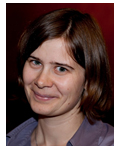
|
Territorial impact assessment: an approach to improve the vertical and horizontal integration of EU energy policy (20 minutes) Abstract
Naja Marot
Biotechnical Faculty
University of Ljubljana
Slovenia
Bio-sketch |
|















